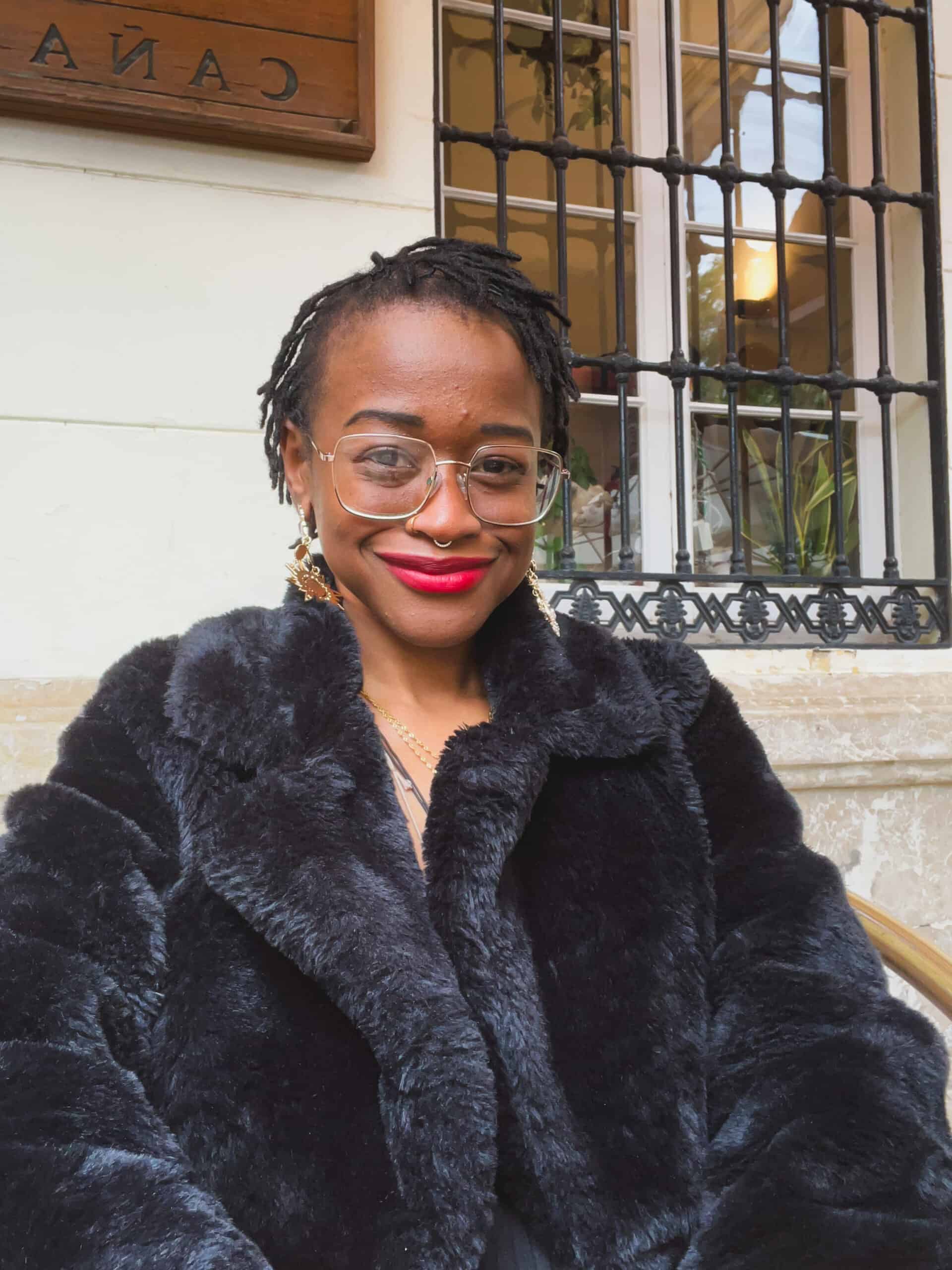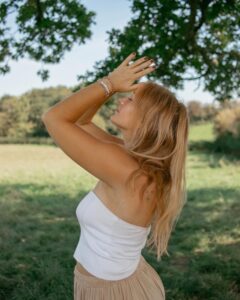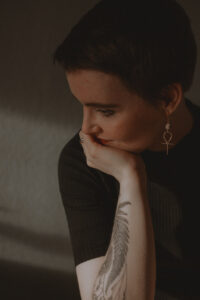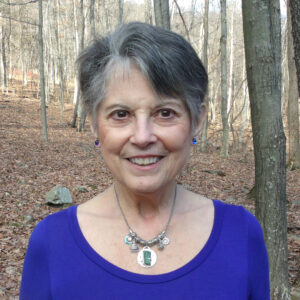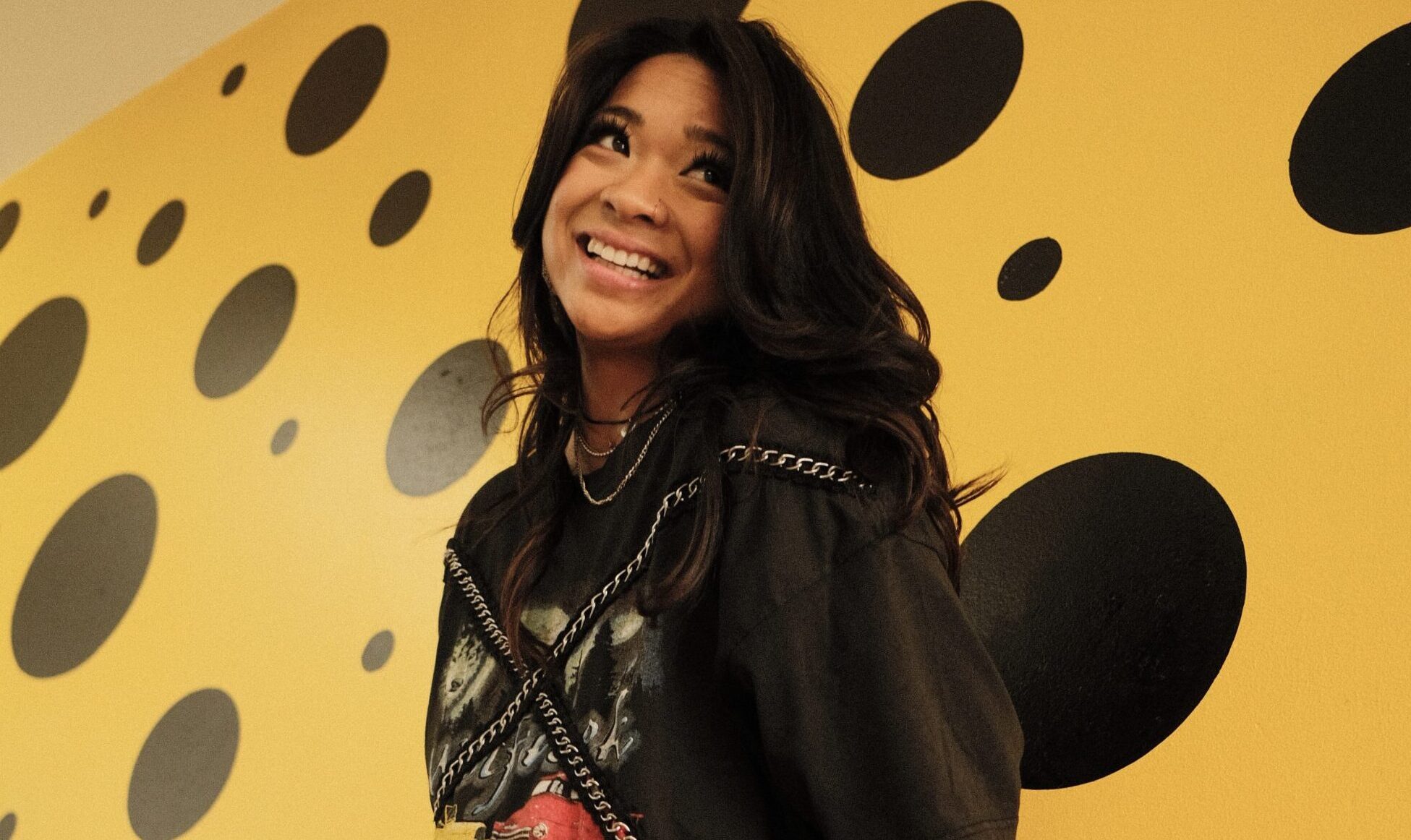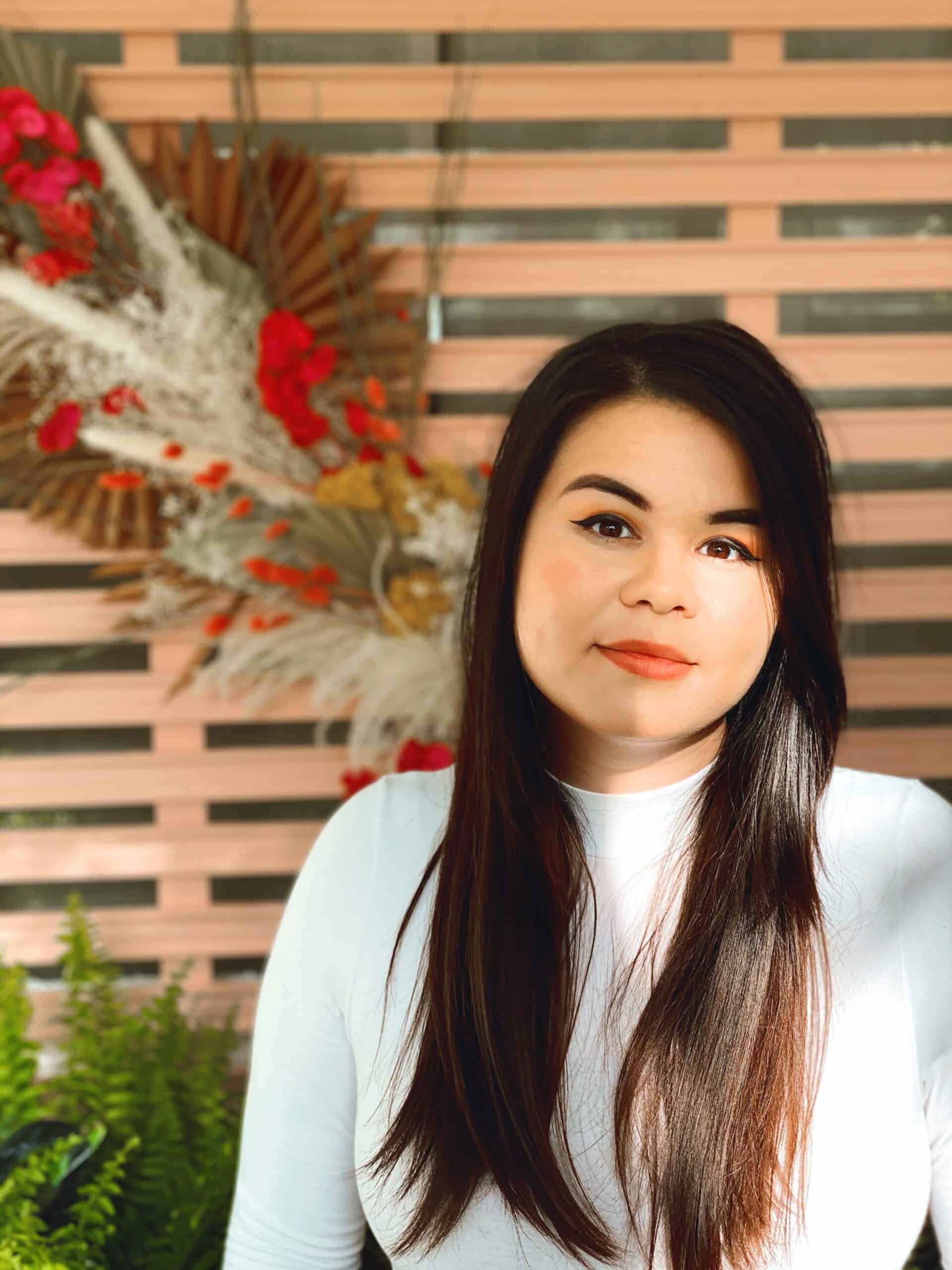In a world often defined by labels and expectations, some individuals courageously embark on a journey to embrace their authentic selves. Laurel Sibanda, a Zimbabwean-British writer and poet, is one such individual. Through her introspective exploration of intersecting identities, generational trauma, and healing, Sibanda’s poetry collection, “Patchwork,” serves as a beacon of authenticity and empowerment.
Join us as we delve into Sibanda’s inspiring journey, her experiences as a black, queer woman navigating the world of poetry, and her unwavering commitment to using art as a tool for social change and healing. In this interview, Sibanda shares her insights, challenges, and hopes for the future of her writing career, inviting readers to embark on their own journey of self-discovery and expression.
Who is Laurel Sibanda? Can you tell us a bit about yourself and your background?
I’m a 29 year old Zimbabwean-British writer and poet currently based in Hampshire, United Kingdom. I am a BA English with American Literature graduate, received from the University of Winchester. I have been writing for most of my life, something I connected to the most during my teenage years when I wrote lyrics and poetry on my growing pains.
However, despite this, I didn’t consider myself a writer or poet. I saw it as a hobby I dabbled in. After I graduated from university in 2018, I felt the pressure to get a “real job” – one that made the most “adult sense”. I was working in customer service roles, but often feeling the dreaded “am I falling behind?” as it seemed like my peers now had “real jobs”. I was dissatisfied and thought this was due to not having the right career. In 2021, I started writing Patchwork.
However the lack of connection to my writing and poetry meant I was still searching for something else. At the end of 2021, I finished writing my book but I also received a job offer in recruitment. This seemed like the right career path for me. But I had also started my healing journey. Although I was trying to make my new role work, the deeper I connected to myself and healed the traumas that had kept me feeling unable to embrace my authentic self, the more the writer and poet in me emerged in full force. Towards the end of 2022, I decided to quit my career path and embrace being a writer and poet. I started to write more on Medium. I then set out to self-publish my book in 2023.
Outside of writing and poetry, I am an avid reader. I love dancing, photography and deepening my spiritual and healing path through meditation, yoga, focused inner work and spending time in nature.
Your poetry collection, “Patchwork,” explores themes of intersecting identities, generational trauma, and healing. What inspired you to delve into these topics?
I started my healing journey in 2021. Through my journalling and therapy I was becoming aware of how these themes had been influencing my life and how I thought about myself and how I was showing up in the world. These themes had felt like they were both enriching my life experience whilst also being an anchor preventing me from embracing my authentic self. I wanted to explore generational trauma especially as I was connecting to how it had affected my mental health and my sense of self and personal power. Poetry and writing is cathartic. My collection was a way of releasing all the things that I had felt unable to voice.
Could you share a personal anecdote or experience that significantly influenced your poetry?
I studied poetry at university as part of my degree and I fell in love with the Romantics era. Their worldview and connection and love for nature resonated a lot with me and I wrote my English Literature dissertation on Percy Shelley. But the curriculum was unfortunately very white and male, so outside of this, I sought to read more black women poets. I especially connected with Audre Lorde and Pat Parker, and I fell in love with their writing style and the themes they spoke about, especially the intersecting identities of being black, woman, and queer. But it was really reading Yrsa Daley-Ward “bone” that inspired me to say “hell yes!” to being a poet and to start writing Patchwork. In her book, she has the lines “Maybe your life will work. Most likely it won’t at first but that will give you poetry” and this stuck with me. It was like a homecoming for my soul. I started writing with this in mind, that no matter the experiences I had and how I continued to not fit neatly into the expected roles for me, poetry was there for me. Poetry is my home and continues to be. I considered naming my book “This will give you poetry” as an homage to her poem but I wasn’t sure about the copyright issues!
As a black, queer woman, what challenges have you faced in expressing your voice through your poetry, and how have you navigated them?
Poetry is the one place where I have felt the most free to express my voice. In poetry, I embrace and embody who we are as multidimensional beings, free of any societal / cultural expectations. In poetry, I embrace the human feelings and emotions that we are often expected to hide and not show, especially as black women. I have faced more of a challenge outside of poetry where I am expected to only have one perspective / voice, depending on the listener or audience. Because my intersecting identities mean I am constantly seeing multiple perspectives, especially in race, gender and sexuality related social issues. I navigate these through acceptance and patience. That most people do and will have a non-intersectional perspective until we have the conversations and it’s not their fault. I also continue to write with the intention of bringing awareness for people who are open to learning.
What advice do you have for other writers, particularly those from marginalized communities, who are seeking to share their stories and experiences through their art?
My advice would be to start writing. If you feel the soul call to write and create, write and create. It can be so easy to be discouraged by mainstream narratives about publishing and sharing our art, especially with the lack of diversity in publishing and creative fields. But we are witnessing a shift regarding whose voices get to be heard in ways that in the past we didn’t have as many opportunities. As a collective, we are now ready to hear new and authentic stories. In spirituality, we understand that we are now in the Age of Aquarius and it is about us embracing our authenticity. Now more than ever, we want to hear voices that have been silenced or discouraged. We no longer want stereotypical and dehumanised art, especially for people of marginalised communities. Instead, we are seeking to connect to our humanity. Art is alchemy and we can use it to heal the scars that have been left within us from being marginalised. Not only does it heal us, but it heals the collective too. Your voice is needed. Disconnect from any narratives that try to tell you that you can’t do it or make it because of your identity too. Focus on your art. Trust that your story is worthy of being heard and that the audience will find it.
How do you approach the process of writing and curating your poetry collection? Do you have any specific rituals or techniques that you find helpful?
For Patchwork, I knew I wanted to write a book and what the themes would be. I was balancing my writing with a full time job at the time. So every day I would write the first draft of my poems related to the themes usually in the evenings with my crystals related to creativity (calcite and citrine) as my companion. I split each section of my poems and editing up by themes. Then during the weekends, I would have round one of editing what I had written. I found listening to music useful for editing and writing poetry too – especially artists with poetic lyrics. Florence and The Machine has been one of my go-to artist for this. I wrote over 70 poems initially and once I had gone through the editing of them, I started to kill my darlings. I printed them all out and spread them across my room to see how they would flow together and the order I wanted them to go in. It took me 9 months in total to get from starting the book to the first draft of my manuscript.
In your journey as a poet, what has been the most rewarding moment for you so far?
Since I published my book, I have had so many rewarding moments just from seeing my book in other people’s hands. This opportunity to talk about my journey is also a part of it. But recently I had someone in Australia send me an email to let me know they had received my book as a Christmas gift and it had deeply affected them enough that they sent me an email to let me know!
How do you see poetry as a tool for social change or raising awareness about issues such as identity, trauma, and healing?
Poetry is the language of the soul and art is revolutionary by nature for how it encourages us to connect to our humanity in all the ways that our left-brain dominated society tries to dismiss its importance. With social change and social issues, it can be easy for them to become a quick headline or a sensationalised but dehumanised story about how these things affect us or “some people”. But in poetry, we express the feelings behind these issues and this goes beyond our egos and the identities we may have otherwise clung to that convince us we couldn’t relate or connect to what is happening because it’s not our direct experience of it.
What are your hopes for the future of your poetry and writing career?
My hopes are for people to connect with my poetry in ways that makes them feel seen and less alone. Especially the works on trauma. My intention with my poetry and writing, beyond being for my self-expression, is to help heal the collective from the ancestral trauma that we have been carrying. I hope to continue to grow as a poet and writer and to have my work reach more people.
Lastly, where can readers find your work, and do you have any upcoming projects or events you’d like to share with us?
Readers can find Patchwork on Amazon available as an ebook and paperback. They can also find my writing on Medium under my username – laurelwriter. I am currently working on my next poetry collection. This one will be specifically about the mother wound – exploring, womanhood, the relationships between mothers and daughters and our ancestral feminine pain. They can also find my my work on my instagram – reflectingpoet.
